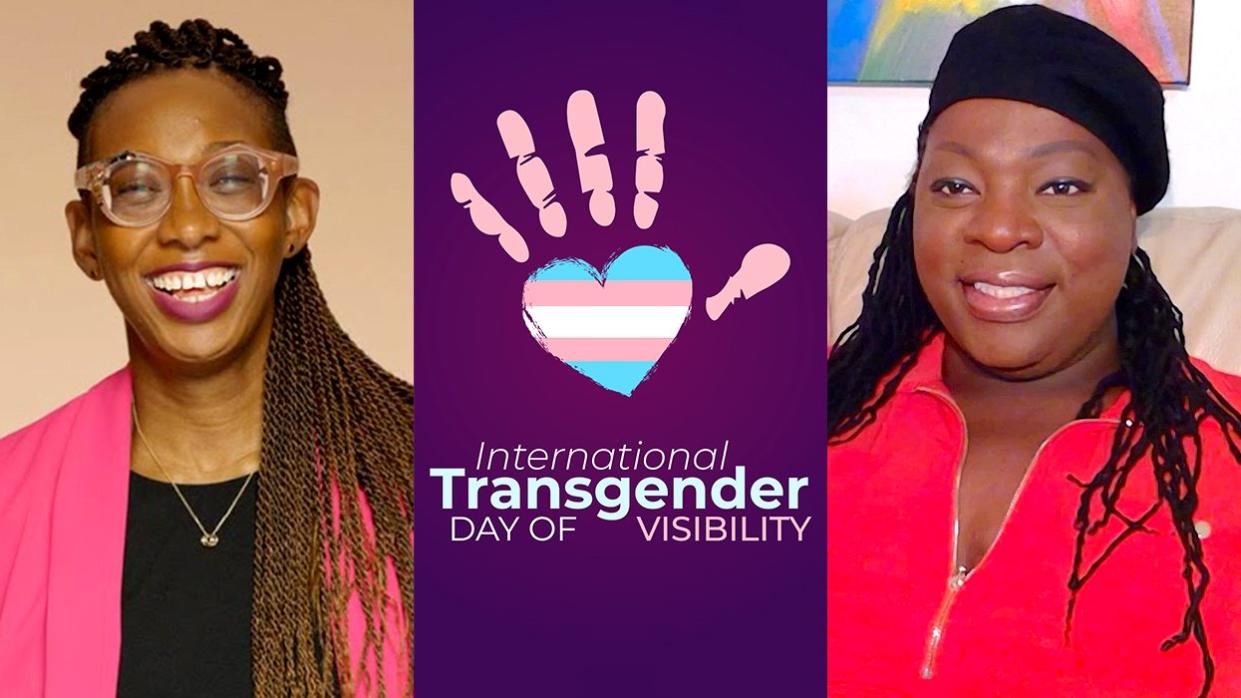Transgender Day of Visibility is the day to elevate the voices of the marginalized (exclusive)

- Oops!Something went wrong.Please try again later.
The Transgender Day of Visibility, celebrated annually on March 31, is a day dedicated to honoring the vibrance, diversity, and resilience of the transgender community. This year, the Human Rights Campaign, the nation’s largest LGBTQ+ civil rights organization, is taking the day to reflect on both the triumphs and trials faced by transgender and nonbinary people.
In the spirit of TDOV, Kelley Robinson, president of HRC, spoke about the dual significance of the day: a celebration of trans joy and a solemn reminder of the struggles for survival.
“In honoring and celebrating Trans Day of Visibility, we also recommit ourselves to doing everything in our power to protect the trans community,” Robinson said in a press release. She emphasized the critical nature of fighting against anti-trans legislation and uplifting the stories of those lost to violence, advocating for a world where the trans community is celebrated for its resilience.
Related: A Call to Action for Trans Youth on Transgender Day of Visibility
“HRC envisions a world where the trans community is embraced for its extraordinary spirit, not ostracized for it. That is why it’s essential to honor trans individuals not for the circumstances of their passing but for the richness of their lives and the positive impact they had on those around them,” Robinson said.
While celebrating the power and visibility of transgender and nonbinary people, HRC also remembered and mourned the countless trans siblings who have fallen victim to violence and harassment, including an acknowledgment of lives cut tragically short in 2024, among them Righteous TK “Chevy” Hill, Diamond Brigman, Kitty Monroe, and the young Nex Benedict, an Owasso High School student in Oklahoma who was only 16 years old at his time of death.
In a recent conversation with The Advocate, Tori Cooper, Director of HRC’s Trans Justice Initiative, illuminated the importance of visibility. “Visibility means making sure that people know who you are…that we humanize the data about trans and non-binary people,” Cooper shared. She highlighted the transformative effect of personal connections in challenging stereotypes and fostering a more inclusive society.
Cooper also drew parallels to the historical trajectory of acceptance for the lesbian, gay, and bisexual community a decade or so ago, expressing hope that increased visibility for transgender individuals would similarly lead to broader social acceptance.
“As more people come out and live openly, those walls of ignorance and fear begin to crumble,” she noted.
Addressing the political challenges, Cooper criticized the fear-mongering and misinformation perpetuated by opponents of transgender rights. She underscored the need for allies across all levels of society and government to combat these narratives and support the trans community.
She said that education and awareness are crucial elements in the journey toward greater acceptance. Transgender Day of Visibility serves as a celebration and a call to action, reminding us of the importance of living openly and authentically.
“Visibility is not just for one day; it’s a commitment to living openly and authentically every day,” Cooper said.

